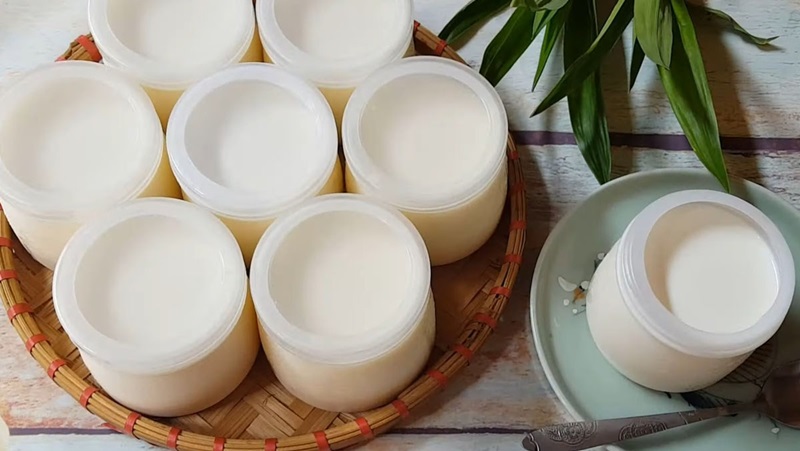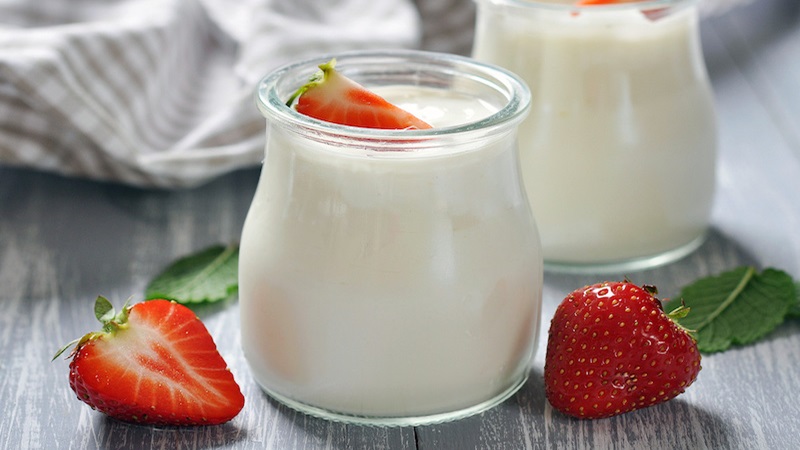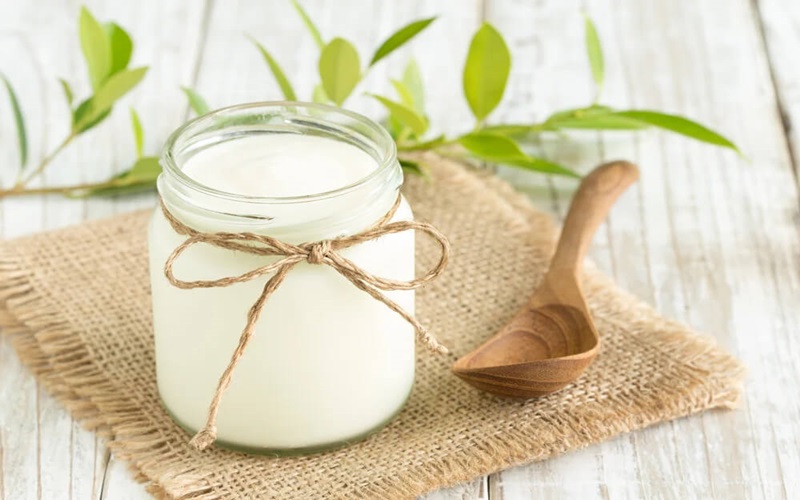Yogurt is one of the most easily digestible foods, packed with nutrients beneficial for digestive health. But does eating yogurt cause acne? Let’s find out in today’s article!
1. Yogurt’s Benefits for the Skin
 Yogurt’s Benefits for the Skin
Yogurt’s Benefits for the Skin
Yogurt is a nutrient-rich food that is excellent for digestive health. Eating yogurt also offers wonderful benefits for the skin. Yogurt contains components that inhibit the formation of skin pigments while fading dark spots, freckles, and pigmentation, giving you a fairer, smoother, and more radiant complexion.
Yogurt can also effectively remove dead skin cells and clean dirt from pores when combined with turmeric powder or honey to create a nourishing face mask.
Additionally, consuming yogurt with certain fruits can improve skin aging, reducing wrinkles and giving you healthier skin.
2. Can Acne-Prone Skin Eat Yogurt?
 Can Acne-Prone Skin Eat Yogurt?
Can Acne-Prone Skin Eat Yogurt?
According to experts, eating yogurt provides numerous benefits for preventing and treating acne:
- Both sweetened and unsweetened yogurt contain a beneficial bacteria called probiotics. This good bacteria can inhibit and kill harmful skin bacteria, thus preventing acne formation.
- Yogurt also contains various vitamins and minerals that effectively regenerate and strengthen the skin’s defense mechanism. For those with acne, eating yogurt not only improves their skin condition but also makes it smoother and more vibrant.
- Daily yogurt consumption boosts immunity and helps protect the skin from damaging factors.
- Yogurt is rich in zinc, which controls sebum production, tightens pores, and reduces redness and inflammation caused by acne.
3. Does Eating Yogurt Frequently Cause Acne?
 Does Eating Yogurt Frequently Cause Acne?
Does Eating Yogurt Frequently Cause Acne?
Consuming yogurt regularly and in moderate amounts not only prevents acne but also reduces the likelihood of breakouts. Yogurt’s ability to combat acne effectively is due to its rich content of beneficial probiotics, vitamins, and minerals, which help the skin fight acne-causing bacteria.
4. How to Eat Yogurt Right for Acne-Prone Skin
 How to Eat Yogurt Right for Acne-Prone Skin
How to Eat Yogurt Right for Acne-Prone Skin
Best Time to Eat Yogurt
The perfect time to eat yogurt is 1-2 hours after a main meal or 1-2 hours before bedtime. Avoid eating yogurt on an empty stomach, as it may kill the beneficial bacteria in the yogurt and affect your digestion.
Choose Unsweetened Yogurt
Those prone to acne should opt for unsweetened yogurt to effectively treat their skin. Excessive sugar intake can disrupt the balance of hormones in the skin, leading to increased sebum production and acne breakouts.
Limit Your Yogurt Intake to Two Cups a Day
It is essential not to consume more than two cups of yogurt per day. Excessive yogurt consumption may have adverse effects on the stomach and intestines, such as stomach aches and cold stomach.
Select High-Quality Yogurt
The market offers a wide variety of yogurt flavors, sugar content, and ingredients. Consider your preferences and health conditions when choosing the right yogurt for you. Additionally, opt for reputable brands, and avoid products with unclear origins.
Storage Instructions for Yogurt
Yogurt has a relatively short shelf life, and the ideal storage period is one to two weeks. Do not freeze yogurt, as extremely low temperatures can kill the beneficial bacteria it contains.
This article has provided comprehensive information about the link between yogurt consumption and acne, along with the benefits of yogurt for the skin. If you found this helpful, please share it with your loved ones so they can benefit from it too!






































